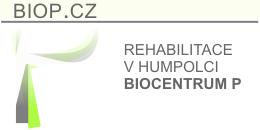

O Biocentru P
To Buy Zantac Online Visit Our Pharmacy ↓
 Natural Alternatives to Zantac: Heartburn Relief Without the Risks
Natural Alternatives to Zantac: Heartburn Relief Without the Risks
The quest for Zantac alternatives has surged due to alarming discoveries regarding its safety. Amidst reports, ranitidine (Zantac's active ingredient) was found to contain N-nitrosodimethylamine (NDMA), a probable human carcinogen. This revelation led to a global recall, leaving consumers seeking safer options to alleviate heartburn and acid reflux without compromising their health. The situation underscores the importance of understanding the potential risks associated with pharmaceutical remedies and the need to explore natural and less harmful options.
Turning to nature for relief isn't merely a trend but a necessary shift for many aiming to minimize their exposure to potentially harmful chemicals. This awareness has propelled the exploration of natural antacids and holistic lifestyle practices as viable alternatives. By addressing the root causes of heartburn and employing natural remedies, individuals can achieve symptom relief while mitigating the risk of adverse health effects associated with some pharmaceuticals.
Nature’s Antacid: the Healing Powers of Ginger
Ginger has been utilized for centuries as a natural remedy to ease digestive issues, including the discomfort of heartburn. Its root contains compounds like gingerols and shogaols, which have anti-inflammatory and gastrointestinal motility effects. These components can help calm stomach contractions and reduce the sensation of heartburn by encouraging a smoother digestion process. The anti-inflammatory properties also aid in reducing the irritation and inflammation that can accompany heartburn. Consuming ginger in moderate amounts, either as fresh, dried, or in tea form, can provide a soothing effect for those seeking a natural approach to manage their heartburn symptoms.
Moreover, ginger's ability to act as an analgesic and sedative further contributes to its effectiveness as a natural heartburn remedy. It not only helps in alleviating the pain associated with heartburn but also promotes a calming effect on the stomach and esophagus, reducing the overall discomfort. For those looking for an alternative to Zantac and other similar medications, incorporating ginger into their diet can be a beneficial and healthful approach. It’s important, however, to use ginger in moderation, as excessive consumption can lead to potential side effects, including digestive discomfort. Consulting with a healthcare provider before making significant changes to one’s diet or health regimen is always recommended.
Aloe Vera: Soothing Relief for Stomach and Esophagus
Aloe vera, known for its burn-healing properties, extends its benefits to treating heartburn and esophageal discomfort. The gel extracted from the aloe vera plant contains compounds that provide a protective coating to the stomach lining and esophagus, reducing the irritation caused by stomach acids. This natural remedy not only offers soothing relief but also promotes healing of the gastrointestinal tract. Its anti-inflammatory and laxative components further aid in digestion, making aloe vera a holistic treatment option for those seeking alternatives to conventional heartburn medication.
Incorporating aloe vera into one’s diet can be as simple as drinking a quarter cup of aloe vera juice before meals or whenever heartburn symptoms arise. Beyond its direct soothing effects, aloe vera enhances the body's digestive processes, leading to less acidity and fewer heartburn episodes over time. It is important, however, for individuals to opt for decolorized and purified aloe vera juice, as the whole-leaf varieties can contain aloin, a laxative that may cause adverse effects in some people. Always consult with a healthcare provider before adding a new supplement to your regimen, especially if you have underlying health conditions or are pregnant.
The Alkaline Solution: Baking Soda's Role in Heartburn Relief
Baking soda, or sodium bicarbonate, has long been hailed as a straightforward yet effective remedy for occasional heartburn and indigestion. Its basic chemistry allows it to neutralize stomach acid, providing temporary relief from the burning sensations associated with heartburn. A simple concoction, usually a teaspoon of baking soda dissolved in a glass of water, is often all it takes. However, care must be taken not to overuse this remedy, as its high sodium content can pose risks, especially for individuals with high blood pressure or heart-related conditions.
The appeal of baking soda lies not just in its simplicity and availability, but also in its rapid action. For those looking for a quick, on-the-spot treatment without resorting to over-the-counter medications, baking soda can offer a much-needed reprieve. Yet, it's crucial to approach this home remedy with moderation and to understand the importance of addressing the root causes of heartburn through diet and lifestyle changes. This ensures that the relief provided by baking soda is not just a temporary fix but part of a comprehensive approach to managing heartburn effectively.
Apple Cider Vinegar: an Acidic Paradox for Treatment
Apple cider vinegar (ACV) shares a long history in the realm of natural remedies, especially for conditions like heartburn. Despite its acidic nature, many people swear by its efficacy in providing relief from heartburn symptoms. The logic seems counterintuitive at first glance since heartburn arises from an excess of stomach acid, and yet, introducing more acid in the form of vinegar could offer relief. This paradox lies in ACV's ability to balance the body's pH levels. When diluted with water, it becomes a weak acid that can help stabilize the stomach's acidity without causing further harm, potentially easing heartburn symptoms.
Moreover, ACV is believed to improve digestion and encourage the stomach to produce hydrochloric acid in more balanced amounts. This can be beneficial because an imbalance in stomach acid can lead to indigestion, which in turn can trigger heartburn. By promoting a healthier digestive process, ACV minimizes the likelihood of heartburn episodes. It’s important, however, for individuals to proceed with caution and start with small doses of diluted ACV to assess their body’s response. Seeking advice from a healthcare provider is recommended, especially for those with chronic heartburn or existing health conditions, to ensure this natural remedy is a safe option for them.
Lifestyle Adjustments: Diet and Habits for Lasting Relief
Making dietary changes is a cornerstone of managing heartburn without medication. Foods known to trigger acid reflux, such as spicy dishes, citrus fruits, tomatoes, chocolate, mint, garlic, onions, and fatty or fried foods, should be avoided. Opting for a diet rich in vegetables, lean proteins, and whole grains can prevent the onset of symptoms. Small, frequent meals rather than large portions can also help minimize the risk of heartburn. Additionally, drinking plenty of water throughout the day aids digestion and helps dilute stomach acid.
Beyond diet, altering certain lifestyle habits can significantly reduce heartburn occurrences. Maintaining a healthy weight through regular exercise is important, as excess weight can increase abdominal pressure and exacerbate acid reflux. Avoiding meals 2-3 hours before bedtime allows the stomach to empty and reduces the chance of nighttime reflux. Elevating the head of the bed by a few inches can also prevent stomach acid from traveling up the esophagus during sleep. Moreover, avoiding smoking and limiting alcohol intake are crucial, as both can irritate the stomach lining and relax the esophageal sphincter, making symptoms worse.
https://andnewonlineblo.com http://www.handrehab.us/images/layout3/php/lipitor.html http://abucm.org/assets/pdf/zofran.html





